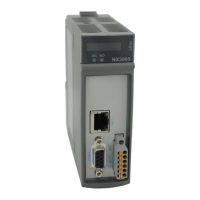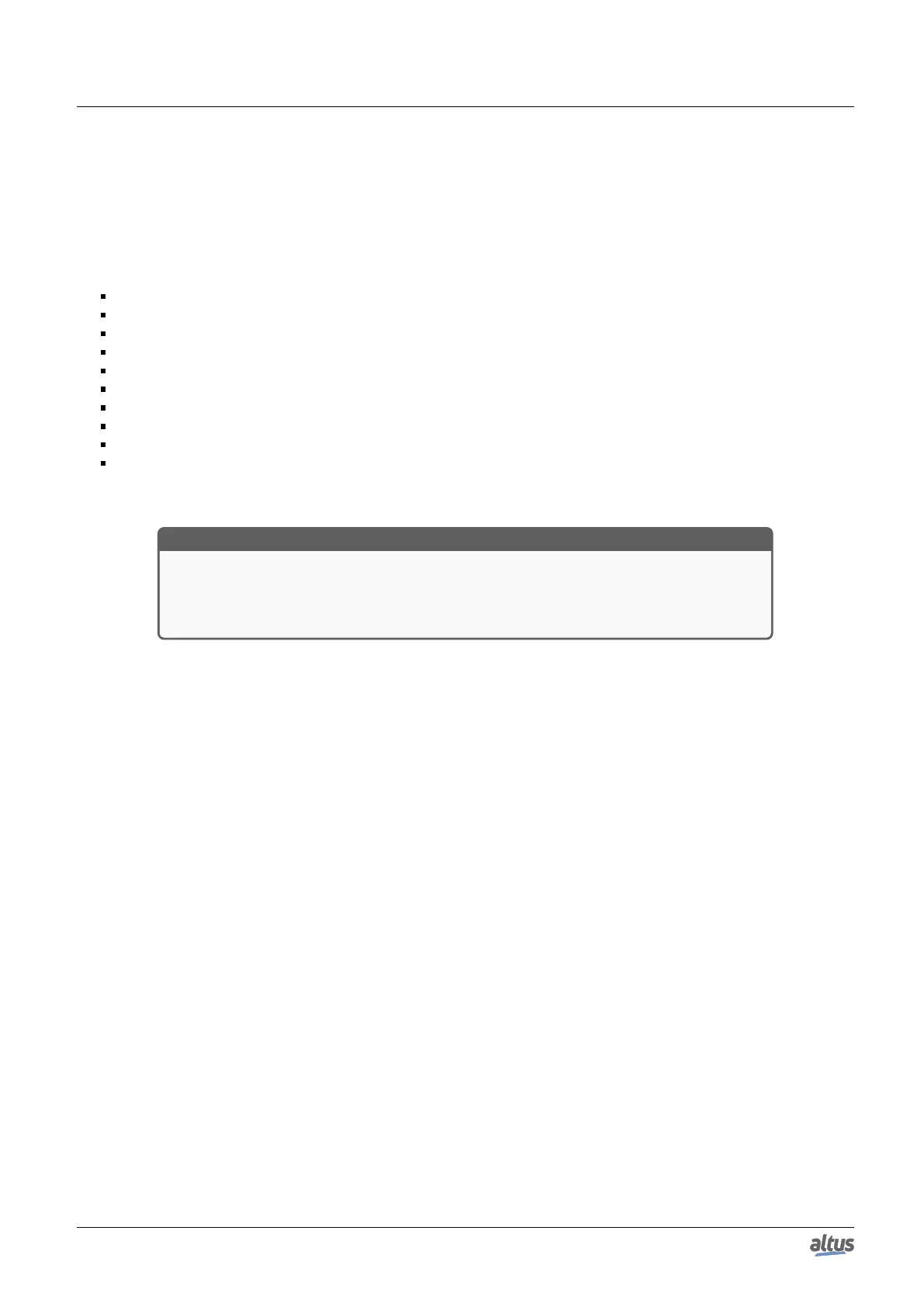5. CONFIGURATION
Default Value: the default value cannot be defined for the IEC Variable field since the creation of a relation can be
performed at any time on application development. The MasterTool IEC XE software itself allocate a value from the range of
direct representation output variables (%Q), still unused. The default cannot be defined for the Data Size field as it will vary
according to selected MODBUS data type.
In the previously defined relations, the maximum MODBUS data size can be 65535 (maximum value configured in the
Data Size field). However, the request which arrives in the MODBUS RTU Slave must address a subgroup of this mapping
and this group must have, at most, the data size depending on the function code which is defined below:
Read Coils (FC 1): 2000
Read Input Status (FC 2): 2000
Read Holding Registers (FC 3): 125
Read Input Registers (FC 4): 125
Write Single Coil (FC 5): 1
Write Single Holding register (FC 6): 1
Force Multiple Coils (FC 15): 1968
Write Holding Registers (FC 16): 123
Mask Write Register (FC 22): 1
Read/Write Holding Registers (FC 23):
• Read: 121
• Write: 121
ATTENTION
Differently from other application tasks, when a depuration mark in the MainTask is reached,
the task of a Slave MODBUS RTU instance and any other MODBUS task will stop running
at the moment that it tries to perform a writing in a memory area. It occurs in order to keep
the consistency of the memory areas data while a MainTask is not running.
5.5.7. MODBUS Ethernet
The multi-master communication allows the Nexto CPUs to read or write MODBUS variables in other controllers or HMIs
compatible with the MODBUS TCP protocol or MODBUS RTU via TCP. The Nexto CPU can, at the same time, be client and
server in the same communication network, or even have more instances associated to the Ethernet interface. It does not matter
if they are MODBUS TCP or MODBUS RTU via TCP, as described on Table 65.
The figure below represents some of the communication possibilities using the MODBUS TCP protocol simultaneously
with the MODBUS RTU via TCP protocol.
127

